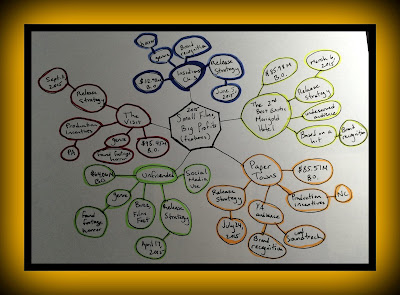PRODUCTION TIPS: 5 Questions Every Filmmaker Should Ask About Their Business
Film is an artform. But it is also a business. If you want to keep making your art, you have to treat it like a business ( I am talking about the logistics of making film, I am NOT talking about the cinematic parts; please don't substitute artistic elements and creativity with financial ratios and marketing buzzwords ). Running a business well means asking the right questions. Here's an article meant for small to midsized business (which is what most film production companies are) about 5 questions they should ask regarding their intellectual property. Substitute "IP" or "intellectual property" or "copyright" with "film" or "pilot" or "media project" and it will make sense and be relevant to you. So enjoy: Five IP Lessons for Small to Medium–sized Businesses Originally published on 6/29/2016 by Joseph Walsh, Jr. | Harness, Dickey & Pierce, PLC Intellectual property plays an increasingly significant
